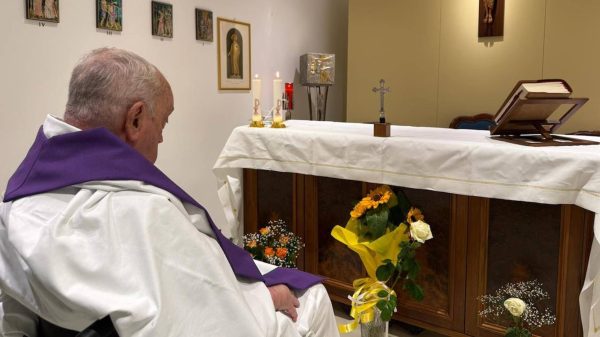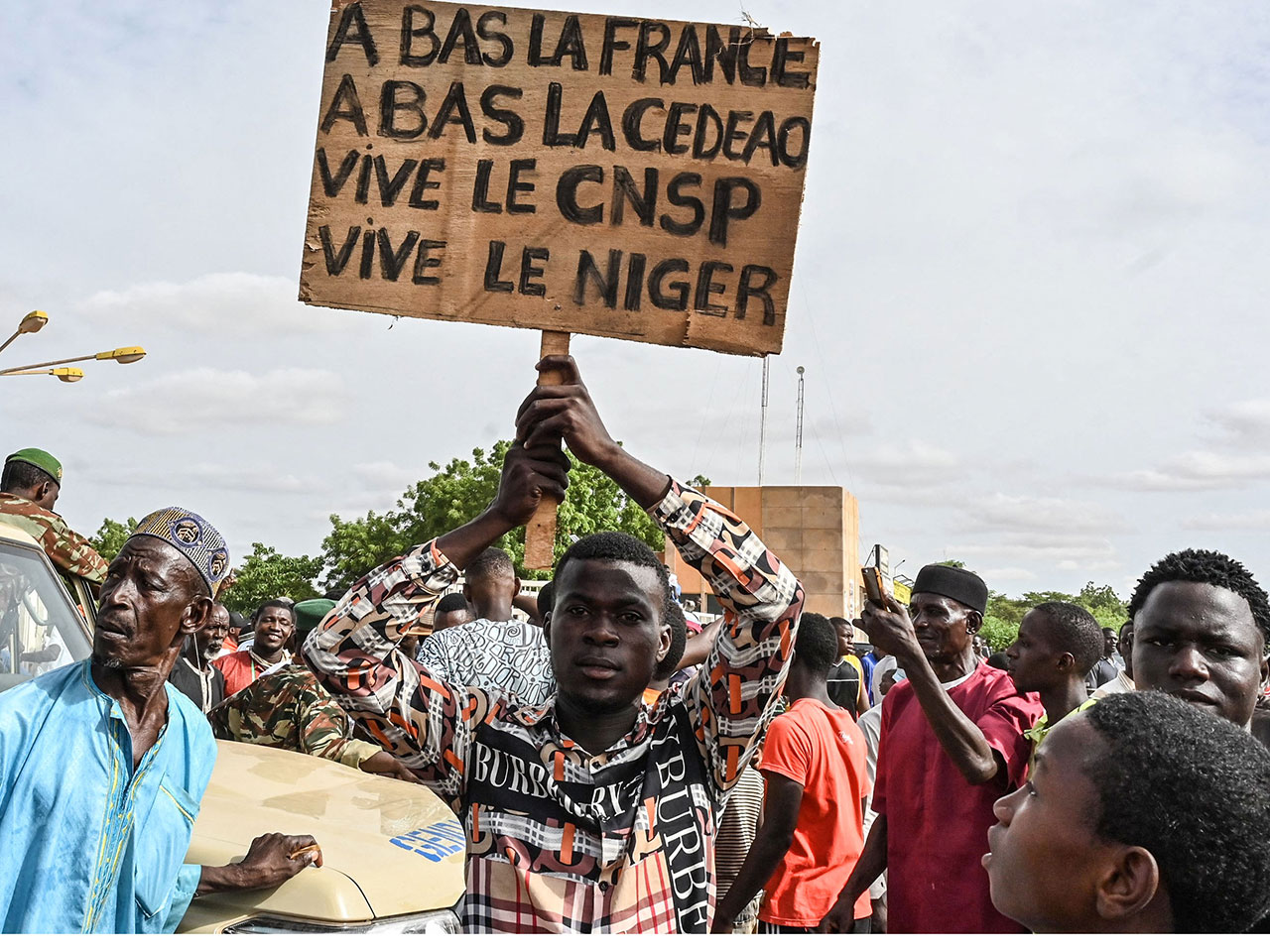The unfolding crisis in Niger, a nation grappling with a military coup led by General Abdourahamane Tiani, casts a dark cloud over France’s traditionally powerful influence in the Sahel region – writes Bintou Diabaté.
This influence, largely unchallenged, has been carefully nurtured and sustained through a three-pronged approach involving diplomatic channels, economic ties, and a potent military presence. Today, as thousands of protesters rally outside the French embassy in Niamey, however, the extent of anti-French sentiment is laid bare, presenting French President Emmanuel Macron with a formidable challenge to his strategic ambitions in Africa.
One of the most striking features of the ongoing crisis is the conspicuous Russian presence, manifested in the symbolic waving of Russian flags during the protests. Such a sight would have been unthinkable a few years ago, as France was perceived as the dominant player in Niger and the Sahel region. Now, the Russian mercenary group Wagner, which has established its presence in neighbouring Mali, embodies Russia’s rising influence. The apparent Russian affinity among protesters is a subtle yet potent indication of a potential realignment of alliances in the region.
Whether Niger’s new leadership will pivot towards Russia remains to be seen. Yet, the possibility of such a shift cannot be discounted. A potential reorientation of Niger’s international alliances could dramatically reshape the geopolitical landscape of West Africa, a region where France has long held sway. If the pendulum of power swings towards Russia, the implications could be far-reaching and could severely undercut France’s influence in the region.
Such a precarious situation compels a reassessment of Macron’s strategy in Africa. A linchpin in his recalibration efforts is Angola, a country with which France has been actively fostering a stronger relationship. Macron’s recent visit to Angola in March and the substantial investment of $850 million from French energy giant TotalEnergies in an Angolan oil project signifies France’s intent to consolidate its strategic alliances in Africa.
Angola, traditionally reliant on oil exports, has been seeking to diversify its economy. The French president’s visit opened avenues for bilateral cooperation beyond the confines of the energy sector, laying the groundwork for a comprehensive and multifaceted partnership. The TotalEnergies’ investment exemplifies France’s commitment to strengthening this alliance, positioning Angola as a reliable strategic ally.
With its firm commitment to regional peace and stability, particularly in the conflict-ridden Great Lakes Region and the Democratic Republic of Congo, Angola has emerged as a regional force for stability. The World Bank report in April praised Angola for its assertive stance in pursuing peace in the region. This commitment to regional stability, combined with Angola’s non-hostile international posture, makes it a potentially invaluable ally for France.
In the face of the uncertainties in Niger, deepening ties with Angola could provide France with an insurance policy, a means to offset potential losses in Niger and sustain its regional influence. However, this approach is not without its complexities. France cannot afford to overlook the immediate challenges posed by the situation in Niger. With between 500 to 600 French nationals and a military contingent of 1,500 soldiers stationed in the country, the stakes are high.
In addition to safeguarding its nationals and military assets, France is tasked with the moral and political responsibility of championing the restoration of democratic rule in Niger. The international community, led by regional bodies like ECOWAS and the African Union, is mounting pressure on the Nigerien junta to reinstate the democratically elected government of President Mohamed Bazoum.
Responding to the crisis in Niger is a test of Macron’s foreign policy approach in Africa. It offers an opportunity to strike a delicate balance between pursuing national interests and upholding commitments to democratic norms and stability. Yet, the path ahead is fraught with uncertainties and complex dynamics that will demand careful navigation from the French government.
In this fluid geopolitical landscape, the actions of France will significantly influence the trajectory of events in Niger and the wider Sahel region. Whether it can successfully recalibrate its strategy while maintaining its influence will be a litmus test for Macron’s presidency and could have profound implications for France’s role in Africa. At the end of the day, it’s not just about preserving France’s standing but also about championing the values of democracy and stability that France and its Western allies hold dear.
Bintou Diabaté is an analyst specializing in security and an international relations graduate of Kings College.






















